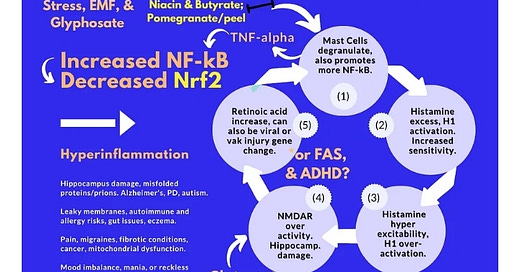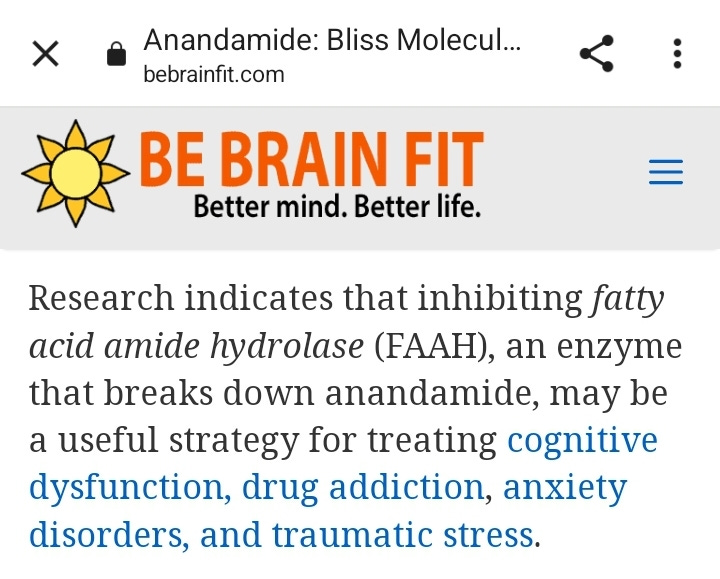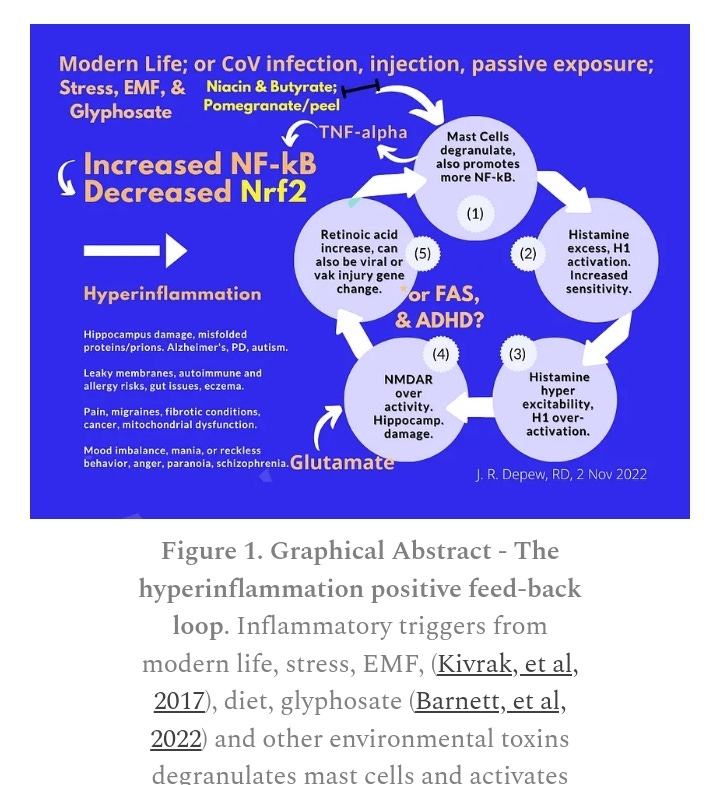Mitochondrial dysfunction precedes, Alzheimer’s / SIRT3.
Draft post I never got back too. *I added more discussion to the last post.
*I added more to the last post. Posted too early.
Alzheimer’s dementia is characterized in later stages by a build-up of tangled, phosphorylated amyloid beta and tau proteins. This can cause mitochondrial dysfunction, yet in earlier stages the protein build-up is not present and there is mitochondrial dysfunction.
“In the pathology of AD, aggregates of both Aβ and tau protein affect mitochondrial function and contribute to increased ROS production. In contrast, a recent study concluded that mitochondrial alterations are not dependent on high levels of Aβ and tau in the early stages of the disease, although they contribute significantly to neurodegeneration caused by mitochondrial dysfunction in more advanced stages of AD [48].” (Dos Santos, et al., 2019)
Epigenetic regulation and modulation of phosphorylation of CREB may be disrupted by changes in the expression of the sirt3 protein.
“Another altered mitochondrial pathway in AD is related to the sirt3 protein, a member of the sirtuin family of proteins responsible for epigenetic regulation, chromatin integrity, regulation of metabolism, and longevity, as well as playing a role in aging [17]. Sirt3, the subtype present in neuronal mitochondria and in several other cell types, is localised in the internal membrane and mitochondrial matrix and nucleus, participates in regulation of ROS production, and modulates the phosphorylation of CREB and fatty acid metabolism [46]” (Dos Santos, et al., 2019)
/Aside: I STRONGLY feel that paywalling comments is supporting censorship. Sure it is a capatalist system and nudging people into payment is a need to pay the bills, however, if activism is the main goal. Then please don't paywall free speech. It is limiting speech to people with endless amounts of money or stupid use of credit cards (raising hand sheepishly).
Additional aside: I tend to post early because I never get back to drafts too often.
Chronic degeneration occurs throughout the body during inflammation. The hippocampus just is more obvious once new memories can no longer be formed.
**Or consider providing more endocannabinoid equivalents to those people who never were able to make them or who no longer are.
We ARE ALL ADDICTS - ADDICTED TO OXYGEN, AND FOOD. Get over Reefer Madness. It was distorted lies. Yes, there are some issues, but 90% hippocampus damage is NOT FUN. At least seems really bad based on observations of my mother. (Who is better on a low histamine and now gluten free diet, with pomegranate juice and CBD drops daily. Methyl B Complex when I can- she is forgetting how to swallow pills.
#patience is needed but #prevention would help more people, a lot more.
I
It sure is nice that no one can see you or your worries in the US.
It takes a village to raise an unhealthy child, or a healthy one. We have been choosing poorly, or being nudged toward extreme harm. Modern life itself is the biggest problem for our collective health.
That graphic is BIG NEWS. I should have put up a paywall as that seems to be the only way modern people can understand value.
Please pay me by sharing the information with people who might listen. Thank you in advance.
Pomegranate - still the bee’s knees - also promotes SIRT-4 and SIRT-3 - which suppress cancer.
/Sirt-4: Pomegranate promotes Nrf2, (Wang, T., et al, 2018) which promotes SIRT-4 which inhibits mast cell degranulation by inhibiting the metabolism of their mitochondria. (Hu B et al, 2020) Nrf2 and pomegranate peel inhibit mast cell degranulation. (Parisio, et al, 2020)
“Like SIRT3, SIRT4 regulates metabolic function through variety of mechanisms. While SIRT3 directs post-translational modifications via protein deacetylation, SIRT4 affects its targets largely through NAD-dependent ADP-ribosylation (Figure 6) [20].” (Zhu, et al., 2014)
‘SIRT3 and SIRT4 are mitochondrial tumor suppressor proteins that connect mitochondrial metabolism and carcinogenesis’, (Zhu, et al., 2014)
Pomegranate polyphenols also affect SIRT-3.
“We established a system for screening foods/food ingredients that augment the SIRT3 promoter in Caco-2 cells and identified 3 SIRT3-augmenting pomegranate-derived polyphenols (eucalbanin B, pomegraniin A, and eucarpanin T1). Among them, pomegraniin A activated superoxide dismutase 2 (SOD2) through SIRT3-mediated deacetylation, thereby reducing intracellular reactive oxygen species. The other SIRT3-augmenting polyphenols tested also activated SOD2, suggesting antioxidant activity.” (Zhao, et al., 2016)
‘Pomegranate-Derived Polyphenols Reduce Reactive Oxygen Species Production via SIRT3-Mediated SOD2 Activation’. (Zhao, et al., 2016)
Disclaimer: This information is being shared for educational purposes within the guidelines of Fair Use and is not intended to provide individual health guidance.
Reference List
(Dos Santos, et al., 2019) Dos Santos, S.M., Romeiro, C.F.R., Rodrigues, C.A., Cerqueira, A.R.L., Monteiro, M.C., (2019). Mitochondrial Dysfunction and Alpha-Lipoic Acid: Beneficial or Harmful in Alzheimer's Disease? Oxid Med Cell Longev. Nov 30;2019:8409329. doi: 10.1155/2019/8409329. PMID: 31885820; PMCID: PMC6914903. https://www.ncbi.nlm.nih.gov/pmc/articles/PMC6914903/
(Hu B et al, 2020) Hu B, Zhao S, Huang M, Ren J. ‘Nuclear factor E2 related factor (NRF2) inhibits mast cell- mediated allergic inflammation via SIRT4-mediated mitochondrial metabolism’. Ann Palliat Med. 2020 Nov;9(6):3839-3847. doi: 10.21037/apm-20-1848. Epub 2020 Nov 16. PMID: 33222465. Available at: https://pubmed.ncbi.nlm.nih.gov/33222465/ (Accessed: 29 Oct 2022)
(Zhao, et al., 2016) Zhao C, Sakaguchi T, Fujita K, Ito H, Nishida N, Nagatomo A, Tanaka-Azuma Y, Katakura Y. Pomegranate-Derived Polyphenols Reduce Reactive Oxygen Species Production via SIRT3-Mediated SOD2 Activation. Oxid Med Cell Longev. 2016;2016:2927131. doi: 10.1155/2016/2927131. Epub 2016 Oct 20. PMID: 27840668; PMCID: PMC5093269. https://www.ncbi.nlm.nih.gov/pmc/articles/PMC5093269/
(Zhu, et al., 2014) Zhu, Y., Yan, Y., Principe, D.R. et al. SIRT3 and SIRT4 are mitochondrial tumor suppressor proteins that connect mitochondrial metabolism and carcinogenesis. Cancer Metab 2, 15 (2014). https://doi.org/10.1186/2049-3002-2-15 https://cancerandmetabolism.biomedcentral.com/articles/10.1186/2049-3002-2-15









Hello!
Any research on EDTA chelators? Doing some deep dives into Nrf2 activation against oxidative stresses and damage...
Thank you again for all your hard work. Too bad we got banned from twitter at the same time (long ago). Glad I found you on substack!